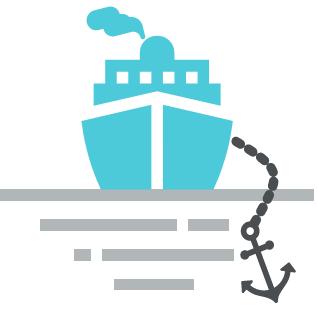Undersea Fiber-Optic Cables Severed in the Baltic Sea, Raising Sabotage Concerns
Two undersea fiber-optic communication cables in the Baltic Sea, including one connecting Finland and Germany, were cut, leading to suspicions of sabotage, according to statements from the involved countries and companies on Monday. This incident echoes previous events in the same area that authorities have investigated for potential malicious intent, such as damage to a gas pipeline and undersea cables last year, as well as the 2022 explosions of the Nord Stream gas pipelines.
The 1 200-kilometer cable linking Helsinki to the German port of Rostock ceased functioning around 0200 GMT on Monday, as reported by Finnish state-controlled cybersecurity and telecom company Cinia. Additionally, a 218-kilometer internet link between Lithuania and Sweden’s Gotland Island went offline around 0800 GMT on Sunday, according to Lithuania’s Telia Lietuva, part of Sweden’s Telia Company group.

Источник: FINNISH BORDER GUARD
In a joint statement, Finland and Germany expressed their “deep concern” over the severed undersea cable and announced an investigation into the incident, which they believe may involve intentional damage. They highlighted that Europe’s security is at risk due to Russia’s war against Ukraine and “hybrid warfare by malicious actors,” although they did not specify who these actors are.
Telia Lietuva spokesperson Audrius Stasiulaitis confirmed that the other cable was also severed, which is owned and operated by Sweden’s Arelion for carrying Telia Lietuva’s internet traffic. Sweden’s Minister of Civil Defense, Carl-Oskar Bohlin, emphasized the importance of understanding why two cables in the Baltic Sea are currently non-operational.
The Baltic Sea, located in northern Europe, is a busy commercial shipping route bordered by nine countries, including Russia. The damage to the Finland-Germany cable occurred near the southern tip of Sweden’s Oland Island and may take between five to 15 days to repair, according to Cinia’s CEO, Ari-Jussi Knaapila.
Last year, a subsea gas pipeline and several telecom cables in the Baltic Sea were severely damaged, raising concerns in the region. Investigators in Finland and Estonia have identified a Chinese container ship that they believe may have dragged its anchor and caused the damage, but they have not determined whether it was accidental or intentional. The 2022 destruction of the Nord Stream gas pipelines, which connect Russia to Germany, remains under investigation by German authorities.

